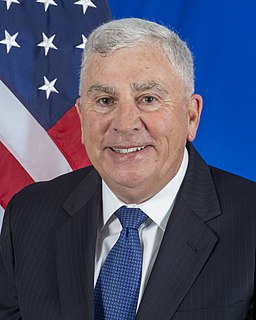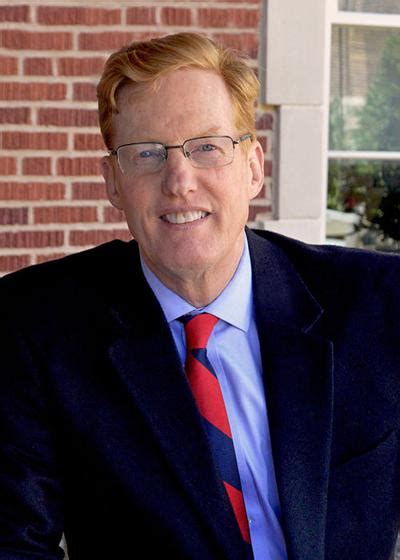A Quote by Gary Johnson
There's an unintended consequence when it comes to drone attacks in Yemen. Yeah, you take out the al-Qaida stronghold, but you also wipe out the other half of the block. That makes Yemenis against the United States for the rest of their lives and all their descendants.
Quote Topics
Related Quotes
In full accordance with the law - and in order to prevent terrorist attacks on the United States and to save American lives - the United States government conducts targeted strikes against specific al-Qa'ida terrorists, sometimes using remotely piloted aircraft, often referred to publicly as drones.
The center of gravity for opposition shifts to Idlib province and Idlib city. That city is dominated by the al-Qaida wing of the opposition and other Salafist forces. The United States and the West cannot support those Salafists and al-Qaida. It means that the rebels are going to have a very hard time getting significant amounts of support.
Currently, the United States has troops in dozens of countries and is actively fighting in Iraq, Syria, Libya, and Yemen (with the occasional drone strike in Pakistan). In addition, the United States is pledged to defend 28 countries in NATO. It is unwise to expand the monetary and military obligations of the United States given the burden of our $20 trillion debt.
Why should we care about the coup? First, because we depend on Yemen's government to support our drone war against another local menace, al-Qaeda in the Arabian Peninsula (AQAP). It's not clear if we can even maintain our embassy in Yemen, let alone conduct operations against AQAP. And second, because growing Iranian hegemony is a mortal threat to our allies and interests in the entire Middle East.
I don't think he fully analyzes the situation. If you destabilize [Bashar] Assad and punish Assad, you do embolden terrorists. You embolden al-Qaida because al-Qaida is on the other side of this war. So, one side wins if you destabilize the other side. So, he will be emboldening al-Qaida and the Islamic rebels. And I'm not so sure they're better than Assad.
France, like every other Western country except the United States, has long accepted the principle that comprehensive health care is the right of every citizen. No Frenchman need ever fear that catastrophic illness will wipe him out financially. How long, do you suppose, will it take us, in the United States, to catch up?
































